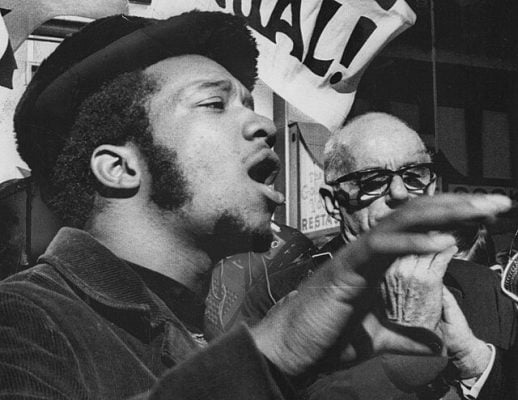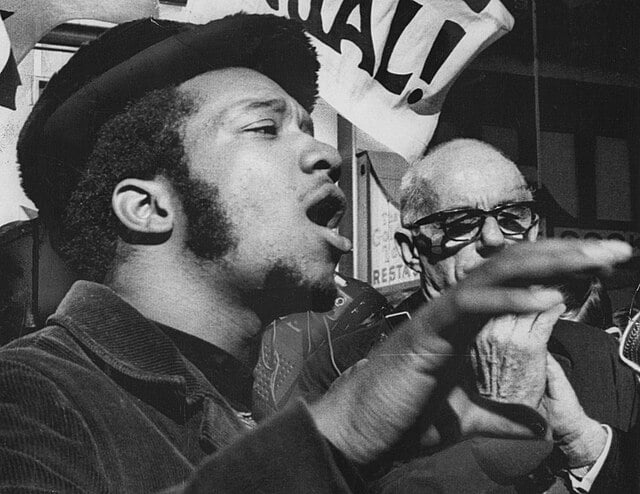Fred Hampton – for a time the deputy national chairman of the Black Panther Party (BPP) – stands out amongst his contemporaries.
Armed with charisma, a sharp mind and tongue, and a voracious appetite for political literature, he became the best figure to emerge from the BPP, all before his murder by the state at the age of 21.
Relatively little has been written about Hampton. And his murder robbed him of the chance to build his own body of work. So, when I found this book, the closest thing to a biography, I had to read it.
What made Hampton?

Hampton was not born the revolutionary we know him as today.
In the four years up to 1968, Hampton went from campaigning in his high school for allowing black homecoming queens, to openly calling for revolution as the chairman of the Illinois chapter of the Black Panthers.
Haas captures Hampton’s infectious revolutionary zeal and commitment to political development. He trained himself to become a skilled orator, and spent two hours each morning reading before facing his day – all while under increasing harassment from the police.
Hampton read eclectically, stating: “[I] take things from Mao Tse-Tung and Martin Luther King, or anybody else applicable to what we are after.”
Unfortunately, however, Hampton did not appraise the effectiveness of these various ideas in terms of the building of a revolutionary party.
Nonetheless, Hampton was politically advanced compared to his contemporaries. He understood that the struggle against racism was a class question, remarking that so long as black nationalists “[are] dealing with a race thing, they’ll never be involved in a revolution”.
Hampton put class unity into practice when he formed the Rainbow Coalition, which sought to bring together various groups struggling against police brutality and poverty.
In seeking to unite workers and the oppressed, meanwhile, Hampton was ready to stand up against sexism within the BPP. West Coast Panthers visiting Chicago requested ‘sisters’ be sent to their hotel. Hampton told them: “Panther women in Chicago are working on Panther programmes, not as whores for Panther leaders.”
Role of the state
As the attorney representing Hampton’s family, Haas is well-placed to deliver an intimate detailing of the actions of the state.
Far from just physical repression (and murder), the capitalist state used its laws – and all manner of chicanery – to besmear and be rid of Hampton and other radical anti-racist leaders.
Haas’ book has its limitations. Hampton’s legacy is reduced to a vague fight for ‘justice’, ‘equality’, and ‘freedom’. This wooliness reflects Haas’ illusions in the legal system to deliver justice: the same repressive state machine that spawned Hampton’s murderers.
Luckily, however, Haas provides ample room for Hampton’s own words on revolutionary socialism to shine through.
Legacy

Sadly we never got to see Fred Hampton develop into the great revolutionary that he could have become.
Although his ideas were ultimately eclectic, and even at times reformist, he was denied the opportunity to fully develop them.
Importantly, it was his revolutionary potential – with his appeals for class unity and militant struggle – that struck fear into the hearts of the ruling class. And that is why they killed him.
The best way to honour Hampton’s legacy is by learning from his life, and fighting to continue the struggle he dedicated his efforts to: the building of a genuine revolutionary party.






